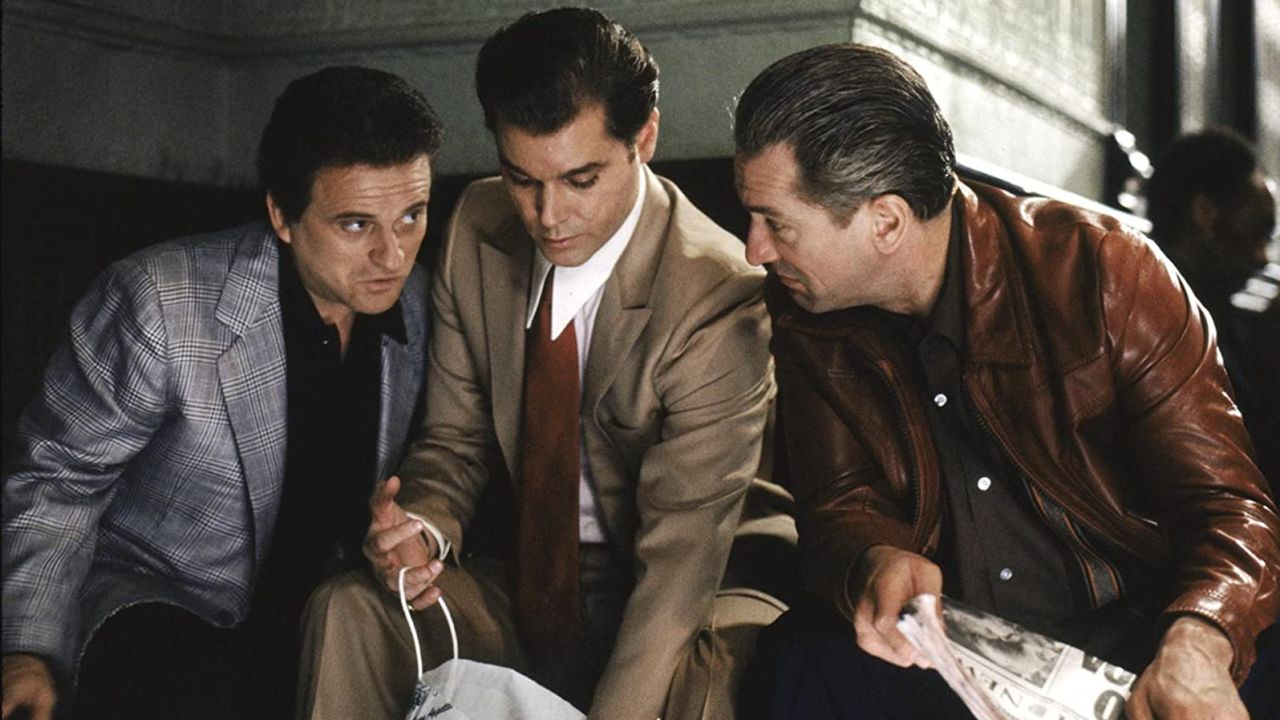9 Best Mafia Movies: Timeless Classics Like The Godfather and Goodfellas
There’s something undeniably captivating about mafia movies. They pull you into a world of crime, loyalty, and power struggles that keep you on the edge of your seat. Whether it’s the intricate plots or the unforgettable characters, these films have a way of staying with you long after the credits roll.
In this article, you’ll discover the 9 best mafia movies that have defined the genre. From timeless classics to modern masterpieces, these films offer a glimpse into the dark and fascinating underworld of organized crime. So, grab some popcorn and get ready to dive into a cinematic journey you won’t forget.
1. The Godfather (1972)
“The Godfather” is often regarded as the quintessential mafia movie. Directed by Francis Ford Coppola, it remains a cultural milestone in cinematic history.
Cultural Impact of The Godfather
Revolutionized filmmaking. “The Godfather” set new standards for storytelling with its complex characters and gripping plot. Shaped popular culture. The movie introduced iconic phrases like “I’m gonna make him an offer he can’t refuse,” embedding them into everyday lexicon. Won awards. It clinched three Oscars, including Best Picture, cementing its status as a masterpiece. Influenced genres. The film’s success led to a surge in mafia movies and TV shows inspired by its style and narrative.
Key Characters and Their Development
Michael Corleone. The transformation of Michael Corleone, played by Al Pacino, is one of the most compelling character arcs. He evolves from a reluctant outsider to a powerful mafia boss. Vito Corleone. Marlon Brando’s portrayal of Vito Corleone, the family patriarch, is both powerful and nuanced, providing a deep dive into loyalty and leadership. Sonny Corleone. James Caan’s role as the hot-headed Sonny adds intensity and emotional depth to the narrative, emphasizing themes of family and vengeance.
2. Goodfellas (1990)
Real-Life Inspiration Behind Goodfellas
Goodfellas, directed by Martin Scorsese, is based on the true story of Henry Hill. Hill, portrayed by Ray Liotta, was a real-life gangster who turned informant against the mob. The movie is adapted from Nicholas Pileggi’s book “Wiseguy,” which provides an inside look at the mob world. The film offers a raw, unfiltered glimpse into the lives of criminals, presenting a brutal yet captivating narrative.
Memorable Quotes and Scenes
Goodfellas is packed with iconic quotes and scenes that have influenced pop culture. One standout moment is the infamous “funny how” scene with Joe Pesci’s character, Tommy DeVito. Another memorable scene is the tracking shot through the Copacabana nightclub, illustrating the allure and power of mob life. Lines like “As far back as I can remember, I always wanted to be a gangster” set the tone for the entire movie, making it an unforgettable part of mafia film history.
3. The Departed (2006)
“The Departed,” directed by Martin Scorsese, stands out for its intricate plot and stellar performances. This Boston-set gangster film won the Academy Award for Best Picture, cementing its place as a modern mafia classic.
Analyzing Star-studded Performances
The cast of “The Departed” is packed with talent. Leonardo DiCaprio plays Billy Costigan, an undercover cop with a tormented soul. His portrayal captures the tension and paranoia of living a double life. Matt Damon excels as Colin Sullivan, a mole within the police department secretly working for mob boss Frank Costello, portrayed by Jack Nicholson. Nicholson’s menacing performance brings a chilling authenticity to the role, making Costello both compelling and terrifying. Mark Wahlberg, Martin Sheen, and Alec Baldwin also deliver strong performances, adding layers of depth to the story. This all-star lineup turns “The Departed” into a riveting drama that keeps you on the edge of your seat.
The Twist of Undercover Complexity
“The Departed” masterfully navigates the theme of dual identities. The film’s tension hinges on the cat-and-mouse game between Costigan and Sullivan, each trying to uncover the other’s true identity. The constant twists and turns create an atmosphere of suspense, as alliances shift and secrets unfold. Scorsese’s direction keeps the narrative tight and engaging, pulling you deeper into the murky world of undercover intrigue. The ultimate twist—where multiple characters meet their fate in a rapid-fire sequence—leaves a lasting impact, reflecting the chaotic and unpredictable nature of the criminal underworld.
4. Scarface (1983)
The Iconic Rise and Fall Story
“Scarface,” directed by Brian De Palma, chronicles Tony Montana’s ambitious journey from a Cuban refugee to a notorious Miami drug lord. You see Montana, portrayed by Al Pacino, as he climbs the criminal hierarchy with ruthless determination. The film captures Tony’s relentless pursuit of power and the ultimate consequences of his unchecked ambition. Iconic scenes, like the “Say hello to my little friend” moment, define his rise and explosive fall in the brutal world of drug trafficking.
Scarface’s Influence on Modern Media
“Scarface” has had a lasting impact on pop culture, influencing everything from music to fashion. You can spot references in rap lyrics, where artists admire Montana’s audacity and swagger. The film’s gritty aesthetic and memorable quotes have permeated video games, notably “Grand Theft Auto: Vice City,” which takes cues from its 1980s Miami setting. Its influence extends to other movies and television shows that explore themes of excess, power, and downfall.
5. The Godfather Part II (1974)
Considered one of the best sequels ever made, “The Godfather Part II” continues the saga of the Corleone family, blending timelines to tell a rich and compelling story.
Comparing Sequels in Cinema
Many sequels often fail to live up to the original, but “The Godfather Part II” is an exception. Directed by Francis Ford Coppola, it delves deeper into the Corleone family’s history. The film showcases parallel narratives of Michael Corleone’s rise to power and his father Vito’s early life. Few sequels match the critical acclaim and storytelling prowess displayed here, making it a benchmark for future sequels.
The Godfather Part II vs. The Godfather
While “The Godfather” introduced audiences to the intricate world of organized crime, “The Godfather Part II” expands on this universe. It contrasts Vito Corleone’s honorable rise to prominence with Michael’s moral decline. The film’s structure, switching between different timelines, provides a comprehensive insight into the family’s legacy. As a result, many critics argue that “The Godfather Part II” surpasses its predecessor in depth and complexity.
6. Donnie Brasco (1997)
“Donnie Brasco” offers a gripping tale based on true events, starring Johnny Depp as an undercover FBI agent and Al Pacino as a seasoned mobster.
Deep Undercover: The Real Costs
In “Donnie Brasco,” Depp’s character, Joe Pistone, infiltrates the mafia under the alias Donnie Brasco. You’ll see the immense psychological toll this operation takes on him. He risks his life daily to gather evidence, constantly balancing his true identity and criminal persona. This deep undercover mission causes severe strain on his personal life, highlighting the sacrifices law enforcement officers make for their careers.
The Relationship Between Agent and Mentor
The film delves into the complex relationship between Pistone and his mentor, Lefty Ruggiero, played by Al Pacino. You’ll witness a genuine bond forming as Lefty unknowingly mentors an undercover agent. This relationship adds depth to the narrative, showing the conflicting emotions Pistone faces as he grows close to Lefty, knowing he’ll betray him. Pacino’s performance brings empathy to a mobster’s life, making it one of the most compelling aspects of the film.
7. Casino (1995)
The Glitz and Grit of Las Vegas
Experience the glitz and grit of Las Vegas like never before in “Casino.” Directed by Martin Scorsese, the movie dives deep into the underworld of the 1970s and 1980s Vegas casinos. Your senses are treated to opulent displays of wealth while showing the seedy, violent undertones of mafia operations. The film balances its depiction of glamorous casino life with the harsh realities faced by those running the show from behind the scenes.
Robert De Niro and Joe Pesci’s Performances
Witness Robert De Niro and Joe Pesci in unforgettable roles. De Niro plays Sam “Ace” Rothstein, a smooth operator who manages a casino with striking efficiency. Meanwhile, Pesci’s character, Nicky Santoro, is a volatile enforcer whose unpredictable nature brings a dangerous edge to the story. Their dynamic performances, filled with tension and nuance, keep you on the edge of your seat, showcasing their incredible range and chemistry.
8. Once Upon a Time in America (1984)
A Unique Take on Jewish Mafia
Sergio Leone’s “Once Upon a Time in America” offers a fresh perspective on mafia films by focusing on the Jewish mafia. You get an in-depth view of the criminal world through the eyes of David “Noodles” Aaronson, a character played by Robert De Niro. The film traces Noodles’ life from his childhood in a New York City slum to his life as a seasoned gangster. This unique angle on mafia dynamics adds layers of depth and cultural context you won’t find in traditional Italian mafia stories.
Non-linear Storytelling in Film
Leone employs non-linear storytelling, weaving past, present, and future events together seamlessly. This narrative style keeps you engaged, enticing you to piece together the intricate puzzle of Noodles’ life and his relationships. The film jumps between different time periods, requiring your focus and enhancing the mystery and complexity of the plot. This approach not only challenges conventional storytelling but also elevates the emotional impact, making it a standout film in the mafia genre.
9. The Untouchables (1987)
Brian De Palma’s “The Untouchables” is a riveting portrayal of the battle against organized crime in 1920s Chicago. With powerhouse performances and intense action scenes, it remains a classic in the mafia genre.
The Historical Backdrop of the 1920s
The 1920s, also known as the Roaring Twenties, were marked by Prohibition, a nationwide constitutional ban on alcohol. This era saw a rise in organized crime, with gangsters like Al Capone taking advantage of the lucrative illegal alcohol trade. “The Untouchables” brings this period to life, showcasing the corruption and violence that plagued cities like Chicago. It vividly portrays the struggle for law and order during this turbulent time, making you feel the tension and chaos.
The Battle Between Eliot Ness and Al Capone
The central conflict in “The Untouchables” is the battle between federal agent Eliot Ness, portrayed by Kevin Costner, and infamous mob boss Al Capone, played by Robert De Niro. Ness assembles a small team of incorruptible officers, determined to take down Capone and dismantle his criminal empire. Their relentless pursuit, marked by dramatic shootouts and strategic maneuvers, highlights the challenges of fighting organized crime. The film’s portrayal of this cat-and-mouse game keeps you on the edge of your seat, illustrating the high stakes involved in bringing a powerful mafia figure to justice.
Conclusion
Mafia movies have a timeless appeal that continues to captivate audiences. Each film on this list offers a unique glimpse into the world of organized crime, blending intense drama with unforgettable characters. Whether you’re drawn to the intricate storytelling of “The Godfather” or the gritty realism of “Goodfellas,” these movies provide a deep dive into the complexities of loyalty, power, and betrayal. The genre’s ability to portray the darker side of human nature while maintaining a compelling narrative ensures its lasting impact on cinema. So, grab some popcorn and immerse yourself in these cinematic masterpieces that have defined the mafia genre.






